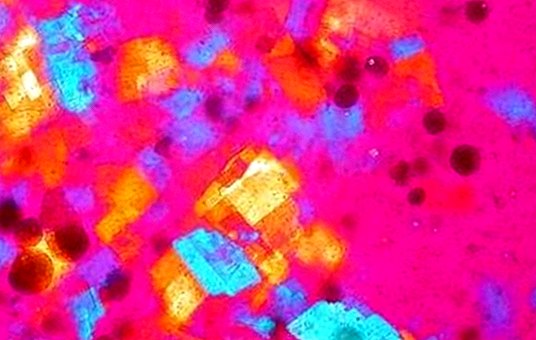Complications of hyperthyroidism
 The thyroid gland It is a gland of our endocrine system. We find it under the Adam's apple, on the trachea and next to the thyroid cartilage.
The thyroid gland It is a gland of our endocrine system. We find it under the Adam's apple, on the trachea and next to the thyroid cartilage.
It is a fundamental gland for our body, since it produces the hormones thyroxine and triiodothyronine, which are usually known by the names of T4 and T3, respectively.
They are two hormones that control our metabolism. This means that they control the way in which the different cells of our organism use energy.
Hence, problems in the thyroid gland can cause the person to lose or gain weight abruptly, and without any other medical cause that may cause it.
The hyperthyroidism is a medical condition that is also known medically as overactive thyroid.
It appears when the thyroid gland tends to produce too much thyroid hormone, which causes various symptoms: fatigue and general fatigue, goiter, nodules in the thyroid, frequent bowel movements, heat intolerance, increased appetite with weight loss, restlessness and nervousness ...
In reference to the treatment to be followed, in addition to the medical treatment indicated or prescribed by the specialist, it is essential to bear in mind what are the Foods not recommended with hyperthyroidism, highlighting especially those foods especially rich in iodine.
But like any health condition or disorder, it is possible that some complications.
What are the main complications of hyperthyroidism?
Hyperthyroidism that has not yet been diagnosed, such as one that has actually been diagnosed, can cause:
- Heart problems: such as heart attacks, atrial fibrillation, arrhythmias, heart attacks, angina pectoris, irregular heartbeat, and congestive failure.
- Osteoporosis.
- Fever.
- Pain in the joints.
- Weight problems: like anorexia.
- Digestive problems: diarrhea or constipation.
- Liver problems: damage to the liver.
- Thyroid crisis
- Pain and discomfort in the neck.
- Sensation of dry mouth, or metallic taste.
- Sore throat.
At the slightest symptom it is advisable to go to our doctor, especially if in the blood tests we have been diagnosed with hyperthyroidism. This article is published for informational purposes only. It can not and should not replace the consultation with a Physician. We advise you to consult your Trusted Doctor.


